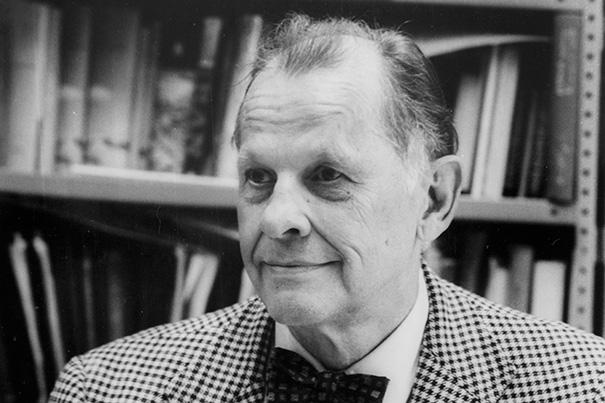He’s an American scholar who wished to be buried in Iran, but will it happen?
Richard Nelson Frye created Harvard University’s Center for Middle Eastern Studies. In 1957 he was named the Center’s first chair of Iranian Studies. He kept that post until his retirement in 1990.
It was in 1948 that Richard Nelson Frye first visited Iran. He first got to the southern part of the country and then made his way to the capital, Tehran.
Frye spent the rest of his life studying the Persian Empire. He fell in love with the region — with places such as Tajikistan, Afghanistan and Iran. He learned Arabic and Farsi, wrote articles, books, and gave speeches.
His love for the region was so deeply-rooted that he requested to be buried in the town of Isfahan in central Iran.
In 2007, in an interview with The World's Katy Clark, Frye said he didn't have a specific reason for choosing Isfahan as his resting place.
"First I was going to be buried near Iran, about 40 years ago, even longer than that, and then, when the [Islamic] Revolution came along, I went to Tajikistan and I thought I would be buried in Tajikistan, because this is part of my conception of greater Iran," he said.
Eventually, he chose Iran, because he thought "in Iran they take better care of you as far as graves are concerned."
Frye was born in US, to Swedish parents. In his will, which is published on his personal website, Frye writes: "Although born of Swedish parents in 1920, I did not have strong roots in various homes in America. Since I felt I had more connection with that part of the world, burial in Iran seemed appropriate."
Frye passed away on March 27th at his home in Boston, Massachusetts. Since Iran's previous presidents, Mahmoud Ahmadinejad and Mohammad Khatami had approved the plan for his burial, it was a matter of transporting Frye's body to Isfahan.
That, however, hasn't happened so far. That's because a group of hardliners in Iran have protested against his burial in Isfahan. They've called him a CIA spy. (Frye served four years in the Secret Intelligence branch of the Coordinator of Information, the agency that preceded the CIA.)
According to Touraj Daryaee, who teaches Iranian history at the University of California, Irvine, though, during the World War II, because Frye knew Persian, Turkish and Arabic, rather than taking up a gun, he was stationed in places such as Afghanistan and Iran.
But for Daryaee, Frye is first and foremost, an exceptional scholar of Iranian studies.
He got to know know Frye more closely when they took a trip together to the Kurdish region of Iran.
"Although he was in his 80s, he was such an inquisitive guy. He had been to Iran many times, but anything that he hadn't seen before, he would get very excited about," Daryaee recalls.
Daryaee believes the opposition to Frye's burial in Isfahan comes from a minority group.
He says he is giving a talk about Frye's life and works to a group of students at Tehran University.
"Students at Tehran University and other universities are planning programs in honor of Richard Frye," he says, adding that Frye was very much loved by the students and scholars of ancient Iran.
If Frye does get his wish to be buried in Isfahan, he won't be the first American to be laid to rest in Iran.
Arthur Pope, Phyllis Ackerman, and Howard Baskerville are all buried there.
Our coverage reaches millions each week, but only a small fraction of listeners contribute to sustain our program. We still need 224 more people to donate $100 or $10/monthly to unlock our $67,000 match. Will you help us get there today?
